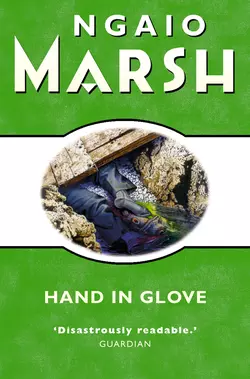Hand in Glove

Ngaio Marsh
Тип: электронная книга
Жанр: Современная зарубежная литература
Язык: на английском языке
Стоимость: 766.24 ₽
Статус: В продаже
Издательство: HarperCollins
Дата публикации: 16.04.2024
Отзывы: Пока нет Добавить отзыв
О книге: One of Ngaio Marsh’s most ingenious novels.The April Fool’s Day had been a roaring success for all, it seemed – except for poor Mr Cartell who had ended up in the ditch – for ever.Then there was the case of Mr Percival Pyke Period’s letter of condolence, sent before the body was found – not to mention the family squabbles.It was a puzzling crime for Superintendent Alleyn…